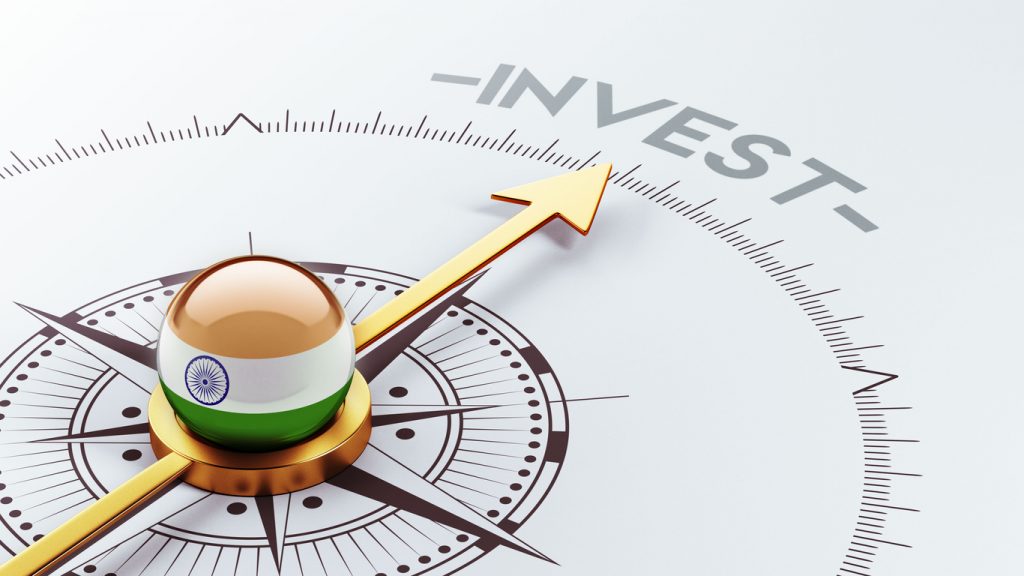Despite dismal forecasts for the global economy in 2020 and less than glowing reports on growth rate in India, investors still remain upbeat on the prospects of the Indian economy going into the future.
Last week, in its latest forecast on economic health worldwide, the International Monetary Fund (IMF) said that it had trimmed back its 2020 global growth forecasts due to unexpected slowdowns in India and other emerging markets. The IMF forecast global growth would reach 3.3 percent in 2020, compared to 2.9 percent in 2019, which was the slowest growth pace since the financial crisis a decade ago.
The reductions reflected the IMF’s reassessment of economic prospects for a number of major emerging markets, notably India, where domestic demand has slowed more sharply than expected amid a contraction of credit and stress in the non-bank sector.
However, speaking at the World Economic Forum 2020 on Friday, IMF Chief Kristalina Georgieva said growth slowdown in India appears to be temporary and she expects the momentum to improve going ahead. She also added that the world appears a better place in January 2020 compared to what it a few months back
This upbeat sentiment on India has been shared by international and domestic investors who have expressed their confidence in the country’s economy through investments that grew 28 percent to US$48 billion in 2019, according to new data by EY, formerly Ernst & Young, the UK-based professional services firm.
Figures from EY show that in 2019, private equity and venture capital investments in India reached an all-time high in terms of both value and volume. In terms of value, investments increased at 28 percent to $48 billion, compared to $37.4 billion recorded in 2018. The growth witnessed was on the back of increased investments in the infrastructure sector, which on its own accounted for 30 percent of the overall investments in 2019 by value, compared to 12 percent in 2018.
The data also included deals that were announced but are still awaiting closure like ADIA, PSP and NIIF’s investment in GVK and others.In 2019, in terms of volume, there were 1,037 deals recorded witnessing an increase by 35 percent from the 769 deals witnessed a year ago. Nearly 60 percent of these deals were in the start-up space, with start-ups recording a 61 percent rise in terms of number of deals in 2019 as compared to 378 deals clinched the previous year.
Though there was a decline of three percent in pure play private equity/venture capital investments, nevertheless, there was a significant increase in investments in the infrastructure and real estate asset classes. which recorded an increase of 225 percent and 33 percent, respectively, on a year-on-year (y/y) basis.
Investments in private equity/venture capital in 2019, recorded the highest ever value in the infrastructure sector with $14.5 billion as compared to $4.5 billion in 2018, while real estate received $6.1 billion against $4.6 billion in the previous year.
Buyouts overtook growth capital deals for the first time and were recorded as the primary PE/VC deal type accounting for 34 percent of all PE/VC investments by value in 2019. This was an increase of 56 percent in terms of value with $16.2 billion in 2019 compared to the $10.4 billion recorded in 2018. In the last two years, buyouts received $26.7 billion in deal value, which is more than the value of buyouts in the previous 12 years combined.
Also, there were 58 deals of buyouts in 2019 which were the highest ever. This was driven by significant increase (180% increase y/y)in value, and an equally large increase (123% increase y/y) in the number of buyouts in the infrastructure and real estate sectors. Buyouts in the traditional PE/VC space, though, decreased in both value (26% decline y/y) and volume (19% decline y/y) in 2019.
Last year, growth capital investments increased by 9 percent to $14.5 billion against the $13.2 billion in 2018. This too was primarily on account of increase in growth investments in infrastructure and real estate sectors which witnessed a growth of 136 percent in terms of value, going from $3.1 billion in 2018 to $7.3 billion in 2019. In terms of volume, the increase was 97 percent, from the 30 deals in 2018 to 59 deals in 2019. Here too, pure play private equity/venture capital witnessed a decline of 26 percent in terms of value and 13 percent in terms of volume.
Remarkably, in 2019, investments in startups were the highest ever in terms of value and volume with $7.9 billion coming into startups, compared to the $6.5 billion in 2018, making it a 22 percent growth rate. The largest investments in a startup in 2019 was the $810 that Softbank invested in OYO Homes & Hotels, an Indian hotel chain. Incidentally OYO is the world’s third-largest and fastest-growing hospitality chain of leased and franchised hotels, homes and living spaces
There were 111 large deals with a value greater than $100 million recorded in 2019, accumulating a total of $35.2 billion and accounting for 73 percent of total private equity/ venture capital investments made in year compared to 81 large deals aggregating $27.9 billion a year earlier. Reflecting a continued confidence in the Indian economy, the value and volume of large deals have been progressively increasing over the past four to five years.

